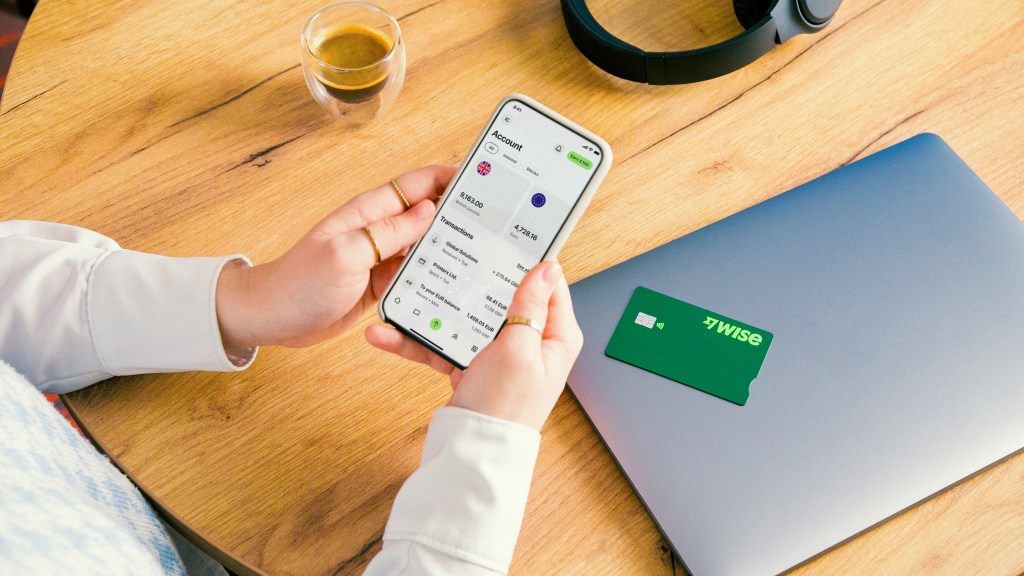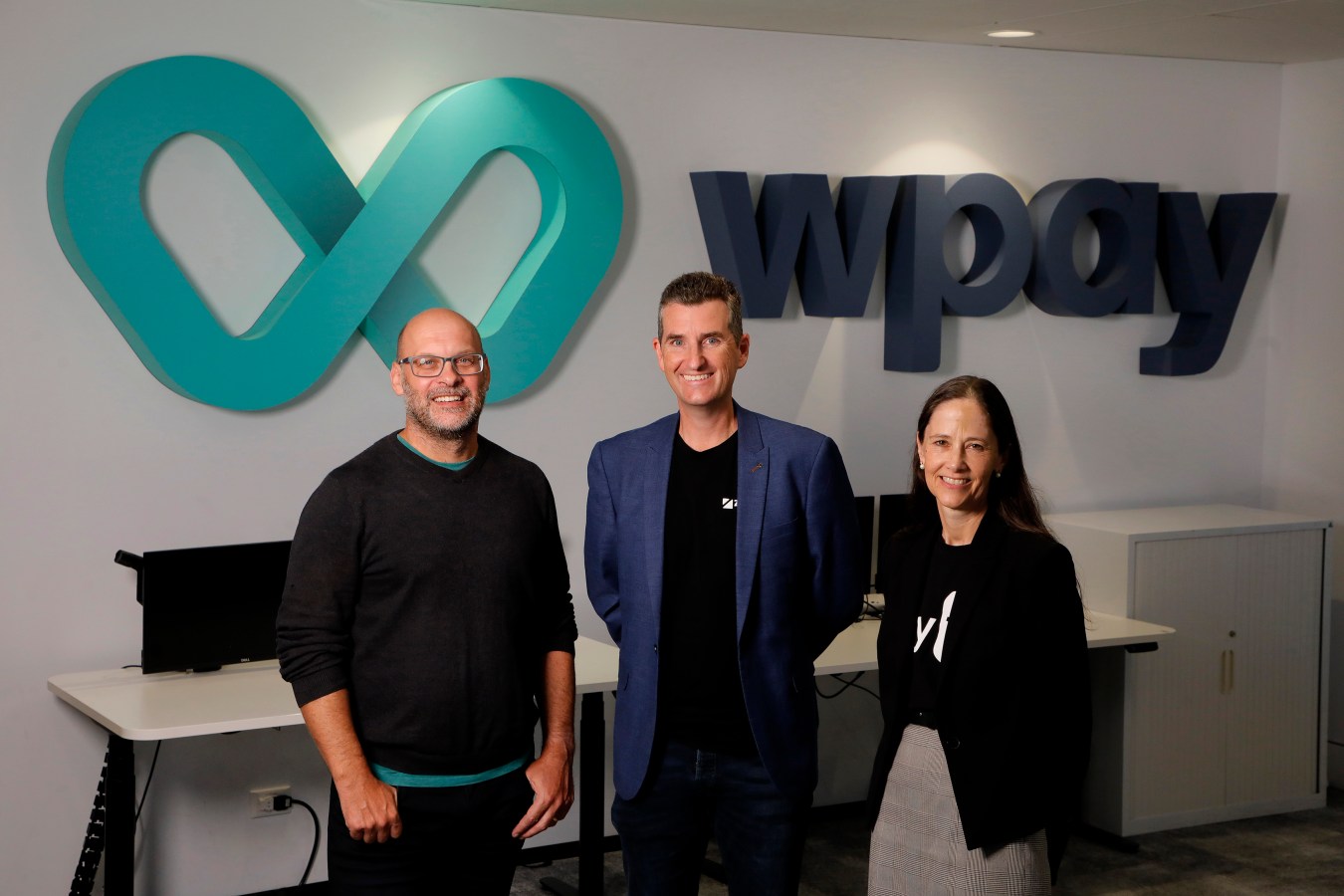Kristo Käärmann launched Wise (formerly TransferWise) back in 2011 with the aim of helping users move cash around the world – without the marked-up fees charged by banks. Since then, the company has gone on to process more than $48 billion in cross-border payments and save customers more than $2.9 billion. Now, Käärmann is calling for more transparency about fees in Australia.

Wise, which officially launched in Australia in 2016, is a trendy-looking international money transfer app that promises to not rip off users when sending money abroad. It was co-founded by Estonian-born Kristo Käärmann, who is the company’s CEO, and Taavet Hinrikus, who met while working in London.
Hinrikus, who was the first employee at Skype, lived in London, but was paid in Euros. Käärmann, who worked for Deloitte at the time, also lived in London and was paid in Pounds, but was paying for his mortgage in Estonia in Euros. They each needed what the other had, so they figured out a way to exchange money between themselves using the mid-market rate, without the fees charged by banks.
Over the years, the company expanded to other currencies and early investors included Richard Branson (who invested US$25 million into the company in 2014) and Peter Thiel and venture capital firm, Andreessen Horowitz. Ten years after its launch as TransferWise, the company went public on the London Stock Exchange as Wise. The pair would both go onto become billionaires, with Käärmann worth US$2 billion and Hinrikus US$1.1 billion.
Last year, the company celebrated its 13th birthday, and Käärmann celebrated by taking his first-ever sabbatical – a three-month holiday, which he admits wasn’t much of a holiday. (Actually, every Wise employee is entitled to a paid six-week sabbatical after four years and £1,000 (AU$1,933) financial support on top).
“I have a four-year-old and a two-month-old baby at home,” he explains. “So, a lot of the normal work was replaced by a different kind of work at home.” Harsh Sinha, Wise’s chief technology officer since 2015, took over for Käärmann while he was off.
(Käärmann’s sabbatical came more than a year after it was revealed that the UK’s Financial Conduct Authority was investigating him after he failed to pay his taxes. Wise confirmed the FCA’s investigation is still ongoing, but provided no further comment.)
Forbes interviewed Käärmann on his first day back at work last year, one he spent in Wise’s Sydney office, which now holds more than 20 staff members, up from a team of two when the company first launched in the country. Wise has developed significantly since that first launch – from launching a multi-currency account and debit card in 2019, to offering AUD direct debits in 2020, its 2021 rebrand and a major integration in 2023 with Prospend and Parpera. The latter allowed Wise’s partners to use its infrastructure to issue multi-currency accounts and digital debit cards via their own interface, directly to their customers.

“We have 800 engineers and software engineers working on making international payments,” Käärmann says. “If you go to any of the large Australian banks, I don’t know how many dedicated engineers they have – maybe 10, maybe 20, but probably not more than that. So, there is a benefit that we’ve built something really valuable, and banks want to use that for their customers… That’s suddenly an avenue where we see brings more convenience to customers.”
Someone needs to ask the big four banks to show their fees, the question is who?
Kristo Käärmann, CEO, Wise
“We’re just quite thoughtful on what we spend our customers’ money on,” Käärmann says. “You don’t see a lot of marketing campaigns by Wise. We’re spending a lot on engineering, because you want better products. And we try to lower your fees as well as we go, so we’re transparent about what we charge. The more scale we have as we grow, it becomes a little cheaper.”
Käärmann points to the company’s integration with Australia’s National Payments Platform as an example: “We’re no longer relying on any of the banking infrastructure in Australia to connect to, to receive and deliver payments for Australians. So, it will get cheaper for us to services Australians and we will pass that onto consumers.”
The company, which is worth £8.71 billion (AU$16.8 billion) has maintained profitability since 2017. In its 2023 annual report, the company reported £846 million in revenue, and profits before tax of £147 million. It counted 10 million active customers (up 34% year-on-year). And Käärmann hopes to launch that product in Australia too. “We’re not there yet,” he says, adding, “We don’t think it’s cool that we hold so much of Australian customer’s money, but we can’t pay interest on this. We’ll fix it in time.”
Banks urged to be transparent
On the point of banks, Käärmann reckons they have some explaining to do, particularly the big four. In June last year, the company campaigned for transparency in Australia, writing to the Treasurer and asking him to mandate price transparency for international payments. The letter was co-signed by 20 multicultural organisations and fintechs.
And late last year, the company researched hidden fees in Australia and gave Westpac, ANZ and CBA a red rating for transparency, while NAB was amber. In its research, Wise found that when sending US$10,000 to the United States, Westpac charged a 3.63% markup, while it gave the illusion of no cost at all by saying there was a “$0 Westpac transfer fee”. The real cost worked out to be $572.73 (AUD).
“Banks should be able to charge whatever they want to charge,” Käärmann says. “It’s their business, and if they want to create a product that costs $500 to use, that should be their freedom. But what we argue is that they should tell you it costs $500 to use.”
NAB earned its amber rating by being the cheapest, but also by mentioning that the exchange rate was indicative and included a margin, though it failed to be transparent on what that margin was (it was a real cost of $369.98). And while Käärmann says it’s not Wise’s business to tell the government what it should and shouldn’t do, it can still illustrate the problem.
“Then they can decide whether they want to tolerate this behaviour or not,” he says. “What’s positive is, it’s very hard to ignore from a common sense perspective. But, I mean governing the country is a complex business, I appreciate that. Someone needs to ask the big four banks to show their fees, the question is who? Is it the central bank’s duty to ask the banks? Is it the ACCC? I think it’s a bit of a hot potato problem.”
And Käärmann says he’d welcome the competition that transparency would bring. “The banks don’t compete with Wise, and they don’t compete with each other. What happens then is, their products and services aren’t getting any better. It’s not getting any cheaper or faster.
The company knows it competes with the likes of Airwallex, which, though private, was last valued at US$5.6 billion (AU$8.3 billion), but Käärmann says competition is a rising tide.
“It’s good for all of us, because it drives better products and services,” he says. “Anytime that a business or individual finds out about what the banks are actually charging and starts looking for other alternatives, they will hopefully find Wise and a few others. I wish there was more [competition].”
Look back on the week that was with hand-picked articles from Australia and around the world. Sign up to the Forbes Australia newsletter here or become a member here.


